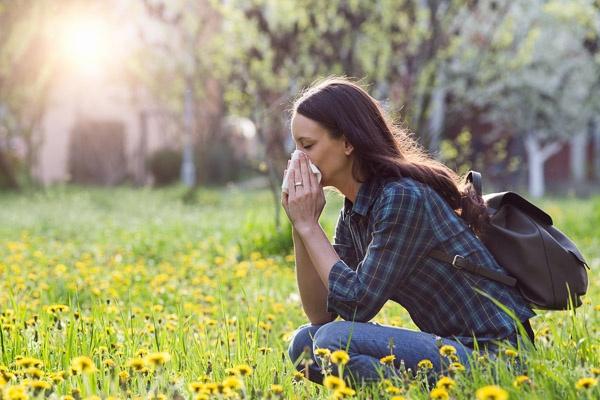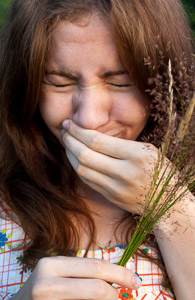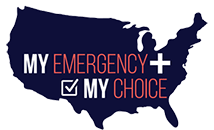Overcoming Hay Fever Misery This Summer

Summer should be a time for relaxing outdoors with friends and family, but if you suffer from hay fever, the season can be pure misery. If you regularly experience strong allergic symptoms, your doctor can recommend a course of medication to bring them under control. However, there’s also plenty you can do to combat hay fever without resorting to drugs.
Tackling hay fever naturally means a combination of lessening the immediate symptoms, reducing the strength of your allergic reactions, and limiting your exposure to pollen. Here’s what to do.
Handling Hay Fever Symptoms
When hay fever hits with a vengeance, the main thing is to get fast relief. Here are some ideas for handling the symptoms.
- Cooling eye drops will help stop the vicious circle of rubbing irritated eyes and making them worse. Use either plain distilled water or a mildly medicated product from your drugstore.
- A sea salt nasal spray will clear out pollen from your nose, as well as calming irritation.
- Gargling with a mixture of a few drops of apple cider vinegar in a glass of warm water is excellent for soothing an itchy throat.
- Using moistened balsam tissues will trap more pollen than regular ones, as well as being kinder to your nose.
- When your symptoms are severe, enjoy a steamy bath laced with an essential oil such as lavender. The steam will remove pollen from the air and soothe your eyes and nose, while the anti-inflammatory properties of the lavender oil vapor will calm your allergic reaction.
Reducing and Preventing Hay Fever

Although relieving the immediate symptoms is welcome, in the longer term it’s helpful to prevent flare-ups as much as you can. You can do this by limiting your exposure to pollen as well as taking steps to dampen the allergic reaction it causes if it does arrive.
Eat Local Honey
Some people believe that eating locally made honey can stave off the worst of hay fever. The theory is that you’re exposing yourself to small amounts of local pollens and building up a resistance. There is no substantial scientific evidence behind this idea, but if you like the taste of honey, it’s certainly worth seeing if it works for you. Choose natural, unprocessed honey made nearby, and start eating a raw tablespoon per day at least two months before the start of the pollen season.
Increase Vitamin D
However, the scientific evidence is much stronger in the case of vitamin D. A deficiency is known to have many effects on overall well-being, including a higher risk of allergies and stronger symptoms when they occur. The best way to up your vitamin D levels is to regularly expose your bare skin to sunlight, which prompts your body to make it naturally.
Of course, going outdoors may be difficult in pollen season, so taking supplements is a practical alternative.
Reducing Pollen Exposure Outdoors
There’s no reason to stay hidden away indoors whenever there’s pollen in the air. Taking a few simple precautions will significantly reduce your exposure when you venture out. Try wearing wraparound sunglasses to stop the breeze blowing pollen into your eyes, and wear a sun hat to prevent it getting trapped in your hair.
See also: Is Your Allergic Reaction an Emergency?
Always drive with your car windows closed, and consider adding a pollen filter to the air conditioning system. Also, some people find it helps to smear petroleum jelly or a similar ointment onto the inside of their nostrils to trap pollen before it’s inhaled.
Reducing Exposure Indoors
Lastly, there are steps you can take to reduce the pollen levels in your home, making it a better haven when the outdoor pollen count is soaring.
- Remove your shoes and outer layers of clothing as soon as you can when you return home, ideally before you enter the main part of your home.
- Next, head straight for the shower, and change into fresh, pollen-free clothing afterward.
- After doing your laundry, dry your clothes indoors rather than hanging them outside.
- Close all your windows overnight, mainly if there’s a breeze.
- Step up your vacuum cleaning routine, doing it as often as possible to keep pollen dust under control. Don’t forget to vacuum furniture and large, exposed surfaces as well as the floor. It can help to wear a face mask while doing this in case you disturb pollen-laden dust.
- Try adding a humidifier to your bedroom. Humid air will trap more pollen and reduce the amount you breathe in while you’re sleeping.
If your hay fever makes summer an absolute misery, then you can certainly speak to your doctor and arrange an appropriate antihistamine prescription. However, you’ll enjoy even better results by attacking your allergy on all fronts, and in mild-to-medium cases, medication might not be necessary at all.




